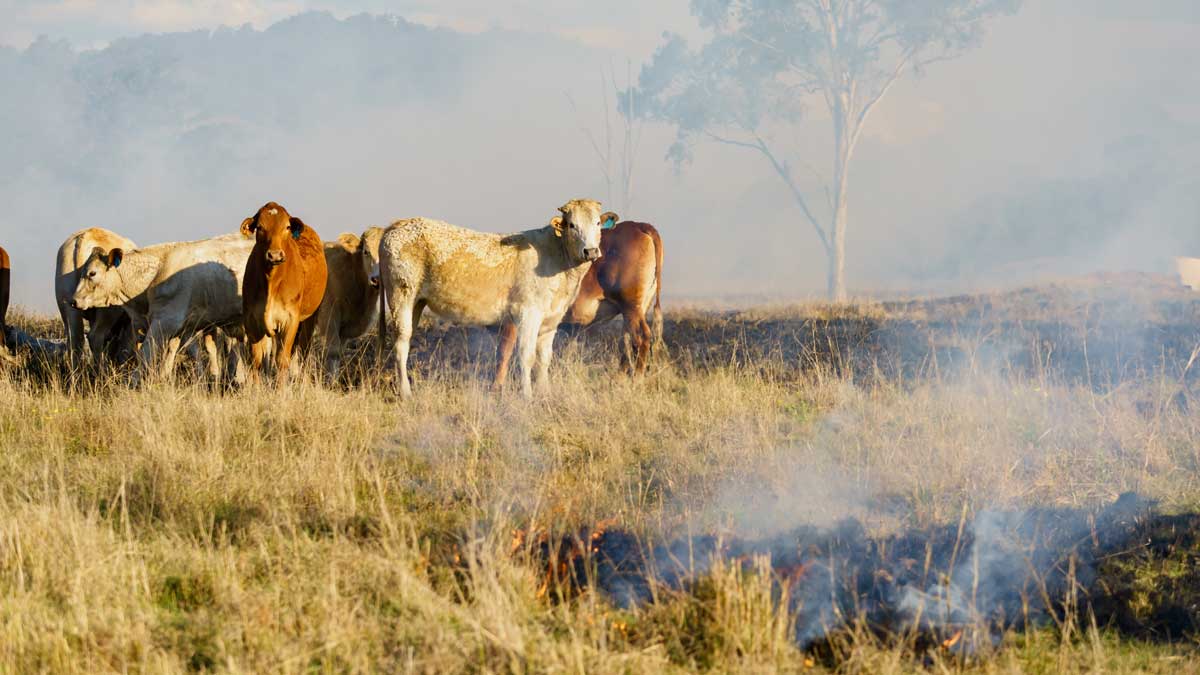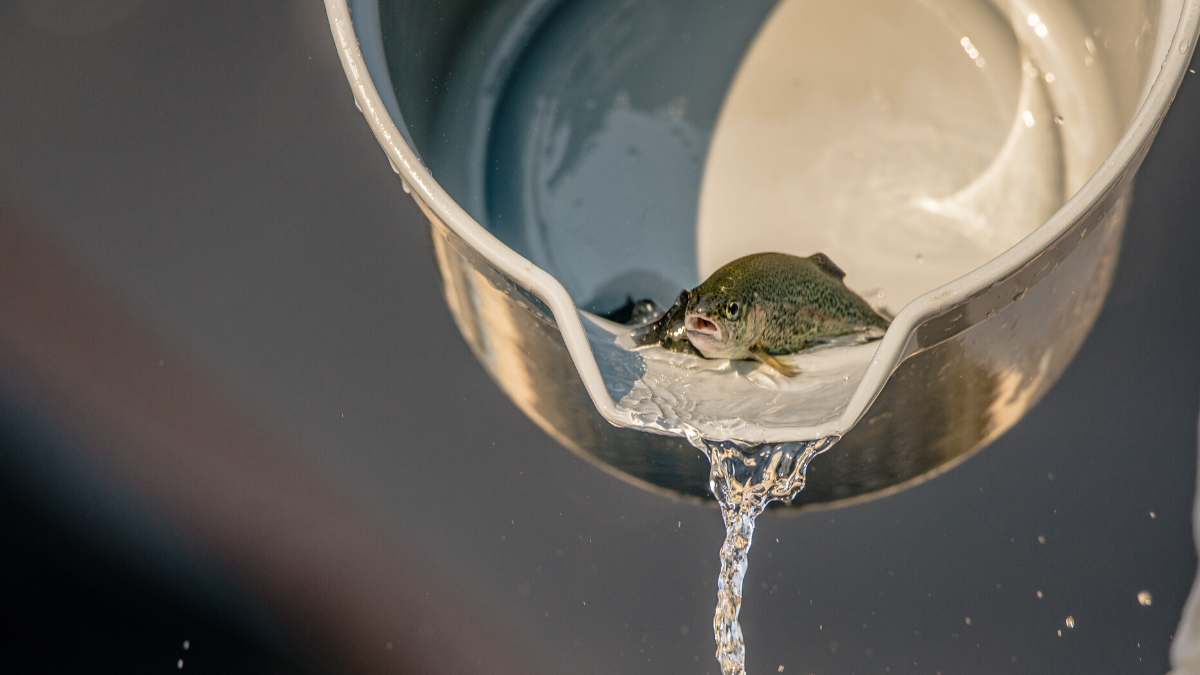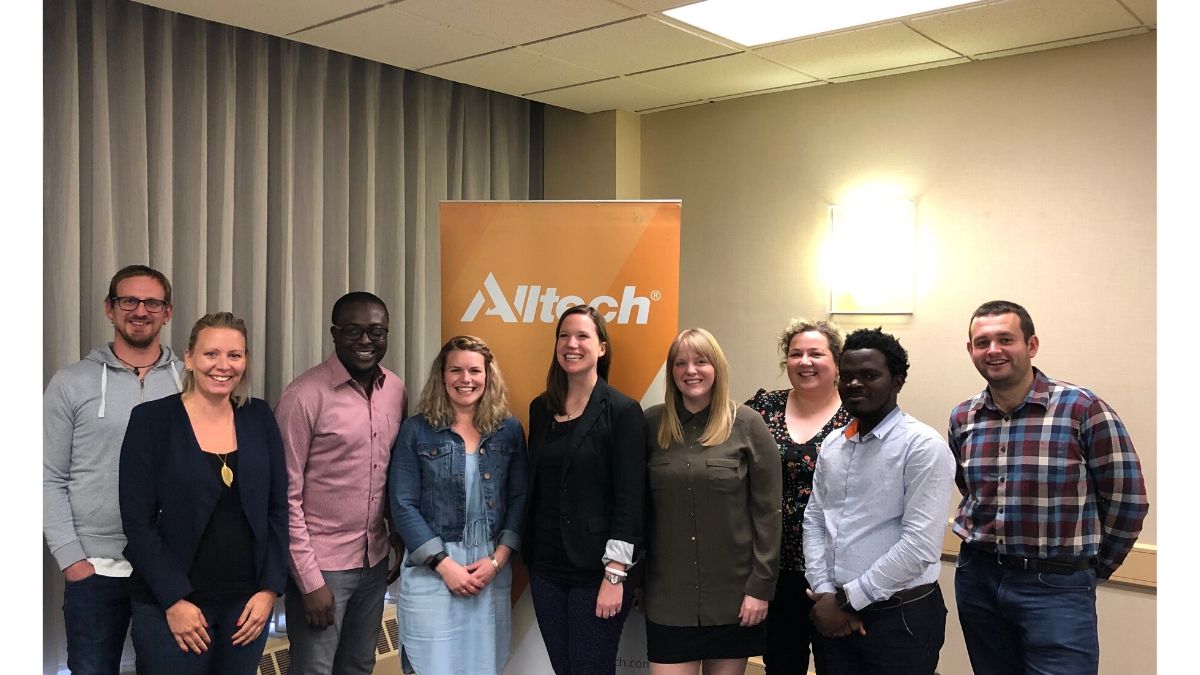The 2020 Alltech Global Feed Survey estimates that international feed tonnage decreased by 1.07% to 1.126 billion metric tons of feed produced last year, due largely to African swine fever (ASF) and the decline of pig feed in the Asia-Pacific region. The top nine feed-producing countries are the U.S., China, Brazil, Russia, India, Mexico, Spain, Japan and Germany. Together, these countries produce 58% of the world’s feed production and contain 57% of the world’s feed mills, and they can be viewed as an indicator of overall trends in agriculture.
Dr. Mark Lyons, president and CEO of Alltech, shared the survey results via public livestream from Alltech’s global headquarters in Nicholasville, Kentucky.
“2019 presented extreme challenges to the feed industry, with one of the most significant being African swine fever. The regional and global implications are reflected by the Alltech Global Feed Survey and the decline in global feed production, said Lyons. “While pig feed production is down in affected countries, we are noting increased production both in other species as producers work to supplement the protein demand, and in non-affected countries as exports ramp up. The damage caused by ASF will have long-term implications, and we expect that the top protein sources will continue to shift as our industry adapts to the shortage.”
The global data, collected from 145 countries and nearly 30,000 feed mills, indicates feed production by species as: broilers 28%; pigs 24%; layers 14%; dairy 12%; beef 10%; other species 6%; aquaculture 4%; and pets 2%. Predominant growth came from the layer, broiler, aqua and pet feed sectors.
Regional results from the 2020 Alltech Global Feed Survey
- North America: The U.S. is the largest feed-producing country globally with an estimated 214 million metric tons (MMT), with beef (61.09 MMT), broilers (48.525 MMT) and pigs (44.86 MMT) as the leading species. North America saw steady growth of 1.6% over last year. Canada produced 21.6 MMT with pigs (8.23 MMT), broilers (3.25 MMT) and dairy (4.2 MMT) leading species feed production.
- Latin America: As a region, Latin America saw 2.2% growth to 167.9 MMT. Brazil remained the leader in feed production for the region and third overall globally, with the primary species for feed production being broilers (32.1 MMT) and pigs (17.0 MMT). Brazil, Mexico and Argentina continue to produce the majority of feed in Latin America with 76% of regional feed production.
- Europe: Europe remained relatively stagnant with a slight increase of 0.2% over last year. The top three feed-producing countries in Europe are Russia (40.5 MMT), Spain (34.8 MMT) and Germany (25.0 MMT), with pig feed production leading the way in all three countries. The ruminant sector was hit the hardest as both dairy and beef numbers are estimated to be down by 4% and 3%, respectively. This was offset primarily by strong growth in the aqua (7%) and layer (3%) industries.
- Asia-Pacific: The Asia-Pacific region saw feed production decrease by 5.5% in 2019, primarily due to African swine fever and large declines in pig feed production. China’s feed production declined by almost 20 MMT of feed overall to 167.9 MMT and fell from the top feed-producing country globally to second, behind the U.S. India and Japan remained in the top nine feed-producing countries, with similar production compared to 2018 with 39.0 MMT and 25.3 MMT, respectively, while Vietnam declined by 7%.
- Africa: Africa continued strong growth with a 7.5% increase in overall feed production, with all the primary species seeing positive growth. The top five feed-producing countries in the region account for 75% of Africa’s feed production, and they are South Africa, Egypt, Nigeria, Morocco and Algeria. The region’s primary species include broiler, layer and dairy, and combined, they account for nearly half of feed production estimates in the region.
Notable species results from the 2020 Alltech Global Feed Survey
- Pig feed production was greatly impacted by African swine fever, with an 11% decrease. The primary producing region for pig feed remains Asia-Pacific, but it also experienced the largest decline of 26%, with China (-35%), Cambodia (-22%), Vietnam (-21%) and Thailand (-16%) experiencing large decreases. Europe, North America and Latin America remained relatively stable compared to last year, within a percentage point’s worth of gain or loss. While Africa is a small region from a tonnage standpoint for pig feed, it showed a large increase of 29%.
- In the poultry sector, Asia-Pacific is the leader in both broiler (115.2 MMT) and layer (73.1 MMT) feed. In Latin America, total broiler production amounted to 60.8 MMT, with Brazil leading the region with 32.1 MMT followed by Mexico with 10.5 MMT, while Mexico’s layer feed production increased by 11% to 7.05 MMT and surpassed Brazil. Russia leads Europe with 10.86 MMT of the total region’s 56.3 MMT of broiler feed and 5.3 MMT of the region’s total of 33.5 MMT of layer feed. In North America, the U.S. accounts for 94% of the broiler feed with 48.5 MMT, while layer feed in Canada increased by 460,000 metric tons.
- Europe leads global dairy feed production with 34% followed by North America (21.8%), Asia-Pacific (17.6%) and Latin America (15.3%). The top dairy feed- producing countries are Turkey (6.5 MMT), Germany (5.2 MMT), Russia (4.2 MMT), the U.K. (3.8 MMT), France (3.4 MMT), the Netherlands (3.3. MMT) and Spain (3.2 MMT).
- North America continues to lead global beef feed production with 62.3 MMT, followed by Europe (21.9 MMT) and Latin America (13.9 MMT). For the 2020 Alltech Global Feed Survey, the beef feed production estimation was recalculated to improve its accuracy. The new estimate takes into account the average days on feed and intake as a percentage of body weight in the feedlot. Last year’s estimation was also recalculated to reflect this formula change for a proper year-on-year comparison.
- Overall, aquaculture feeds showed growth of 4% over last year. Per ton, Asia-Pacific grew the most with an additional 1.5 MMT. The primary contributors were China, Vietnam and Bangladesh. Europe’s decrease is in large part due to decreased feed production in Russia, which is primarily due to an increase in imports.
- The pet food sector saw growth of 4% with the largest tonnage increases in Asia-Pacific (10%), Europe (3%) and Latin America (6%). By country, increases were seen in China, Indonesia, Portugal, Hungary, Ecuador and Argentina.
During the live presentation, Dr. Lyons was joined by a panel of industry experts, including Jack Bobo, CEO, Futurity, USA; Matthew Smith, vice president, Alltech, U.K.; Bianca Martins, general manager, Alltech, Mexico; and Brian Lawless, North America species manager, Alltech, USA. The group discussed the trends behind the data and the implications for the global market. Topics ranged from consumer demands to the adoption of new technology.
To access insights from the 2020 Alltech Global Feed Survey, including a recording of the panel discussion, an interactive map and presentation slides, visit alltechfeedsurvey.com.
The Alltech Global Feed Survey assesses compound feed production and prices through information collected by Alltech’s global sales team and in partnership with local feed associations in the last quarter of 2019. It is an estimate serving as a resource for policymakers, decision-makers and industry stakeholders.




















